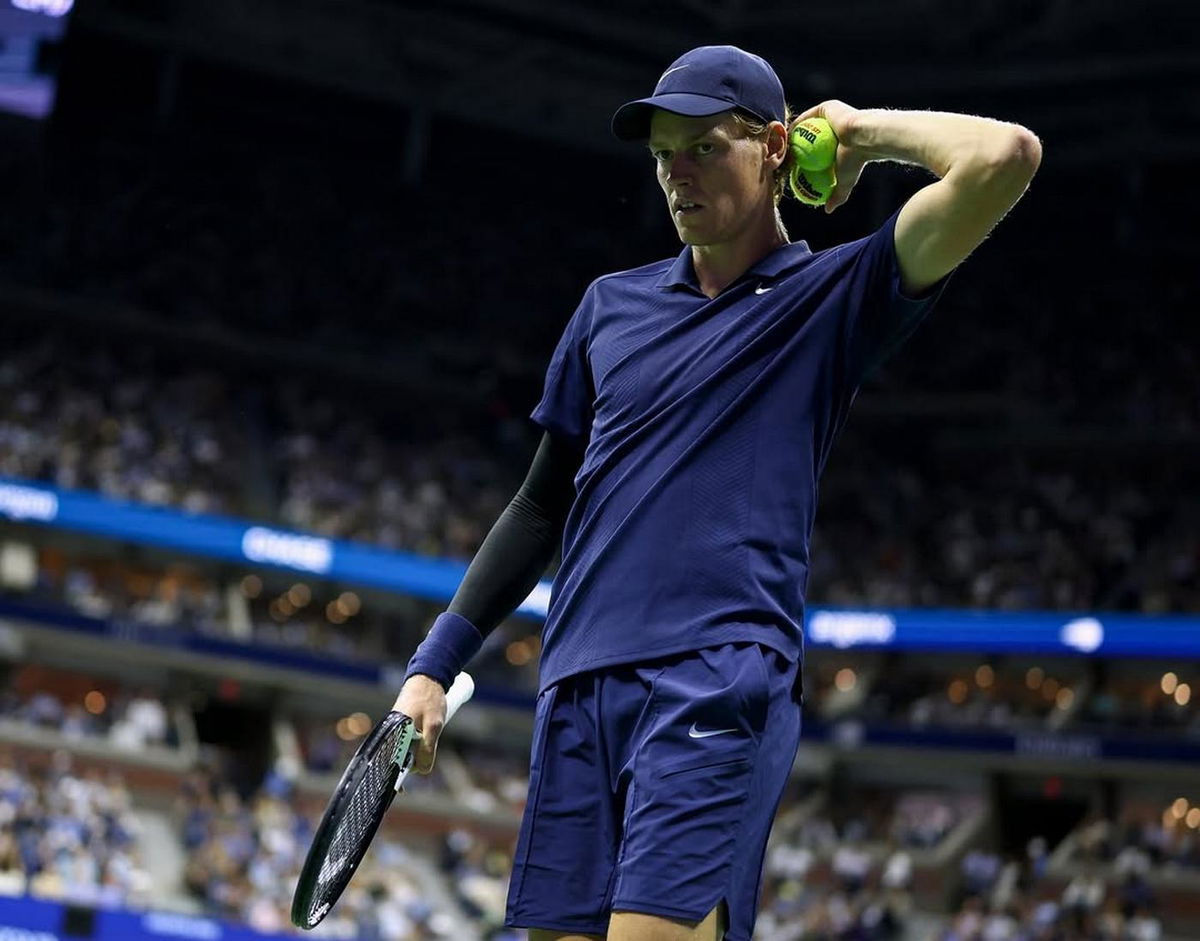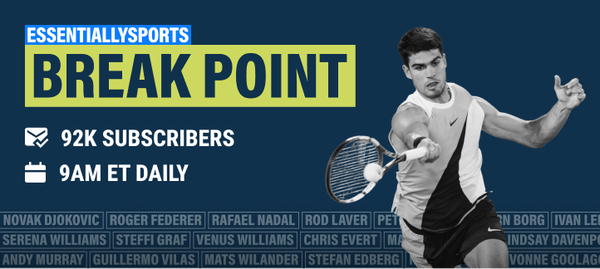Oct 6, 2025 | 6:30 AM EDT

Imago
Image Credits: Jannik Sinner/Instagram

Imago
Image Credits: Jannik Sinner/Instagram

Imago
Image Credits: Jannik Sinner/Instagram

Imago
Image Credits: Jannik Sinner/Instagram
“We have to be smart about it — not really unfortunately care about the rules and just think what’s healthy for us,” Iga Swiatek admitted, summing up the harsh reality players face. Her words rang true as Carlos Alcaraz withdrew from the Shanghai Masters to prioritize his health. Similarly, Jannik Sinner had to retire mid-match under suffocating conditions that turned tennis into survival of the fittest. Now, Coco Gauff’s ex-coach, Brad Gilbert, has broken his silence, offering a bizarre yet striking take on the deteriorating Shanghai circumstances.
Watch What’s Trending Now!
An X post from Gill Gross lit up tennis circles this week, striking at the heart of Shanghai’s chaotic storyline. “Coming into Shanghai… Griekspoor was on a 7-match losing streak. Shang had lost 6 of his last 7. Nishioka had lost 12 of his last 13 ATP 1st round matches. They all beat top-16 seeds and made (at least) 3rd round this week. Things can change fast for terrific talents,” he wrote. Seeing tennis stars rise to the occasion makes it an exciting sport.
Soon, Coco Gauff’s former coach, Brad Gilbert, reshared the post with his own piercing take: “The greatness of tennis 🎾 also if you keep putting in the work on the practice courts and the gym, you have to be ready when opportunity knocks, in Shanghai this week very warm conditions became equalizer.” His words echoed across the sport, as the brutal weather itself seemed to level the playing field in Shanghai.
From the outset, the conditions were merciless. Humidity spiked at nearly 90%, suffocating players and testing the limits of even the fittest bodies. Jannik Sinner cramped badly before retiring against Griekspoor, his legs betraying him in the thick, wet air. Others fell too, Terrence Atmane, Hamad Medjedovic, and Yibing Wu all bowed out, undone not by opponents but by the unrelenting atmosphere.
Coming into Shanghai…
Griekspoor was on a 7-match losing streak.
Shang had lost 6 of his last 7.
Nishioka had lost 12 of his last 13 ATP 1st round matches.
They all beat top-16 seeds and made (at least) 3rd round this week. Things can change fast for terrific talents.
— Gill Gross 🌆 (@Gill_Gross) October 5, 2025
Gabriel Diallo advanced in an almost surreal manner, moving into the R16 in just twelve minutes after David Goffin retired, citing injury. What should have been a contest dissolved into another reminder of the frailty exposed by the Shanghai heat. Each case added fuel to the firestorm of criticism surrounding the scheduling and conditions of the Asian swing.
Even Novak Djokovic, a warrior conditioned for the sport’s fiercest battles, was not immune. Against Yannick Hanfmann, the Serbian icon looked visibly weak and threw up twice during changeovers. His struggles were a stark image of how savage the climate had become, stripping tennis of its grace and turning it into survival.
While victories are still being won and breakthroughs celebrated, the dominant narrative in Shanghai has shifted. It is no longer just about who wins or loses but who can endure the heat. As former players and coaches continue to slam the conditions, unlike Gilbert, one truth emerges: the Shanghai Masters has become a battleground not only of tennis talent but of human endurance itself. Similarly, an Asian player, a former doubles world No. 1, accustomed to playing in these harsh conditions in his country, shared his perspective on the matter.
Rohan Bopanna sides with the chair umpire on Shanghai conditions
Just yesterday, the official Rolex Shanghai Masters account dropped an Instagram clip on Sunday, intending to showcase a light-hearted courtside moment. Instead, it pulled back the curtain on just how harsh the conditions have become for players this week. Former doubles World No.1 Rohan Bopanna and his partner Jean-Julien Roger were locked in battle with James Tracy and Robert Cash on Court No.3. However, the relentless heat and humidity in Shanghai made the grind almost unbearable.
In the clip, fans witnessed Bopanna candidly chatting with the chair umpire, desperately seeking remedies against the suffocating weather. “I never wear wrist bands,” he admitted, a rare confession for the veteran. The umpire immediately responded, “Yeah. Like I am sweating like just sitting here.”
Bopanna, usually composed under pressure, revealed a side rarely seen. “I don’t sweat easy. Which is in a way good, but still, not easy,” he explained, drawing empathetic agreement from the umpire: “Not easy, yeah.” Then came his simple but practical solution. “That’s why the coconut water…” he suggested. The umpire nodded in instant approval: “Coconut water is a good strategy.” It’s a natural Gatorade for most athletes from the Asian continent.
As play continues into day six of the Shanghai Masters, the conditions only worsen. For players chasing glory, survival now feels just as demanding as victory.



